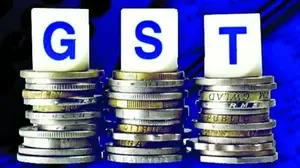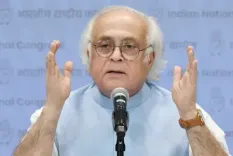Will GST 2.0 Reforms Instigate a Consumption-Led Growth Cycle in India?

Synopsis
Key Takeaways
- GST 2.0 reforms are expected to drive a consumption-led growth cycle.
- These changes will likely simplify compliance for businesses.
- Market sentiment is closely tied to outcomes from the GST Council.
- Lower tax rates on essentials could boost consumer spending.
- The automotive sector may benefit significantly from these reforms.
New Delhi, Sep 3 (NationPress) The forthcoming modifications to the Goods and Services Tax (GST), expected to be unveiled on Thursday, are set to catalyze a significant, consumption-driven shift in India's growth trajectory, as highlighted in a recent report.
This comes in addition to previous stimulus actions such as welfare expenditure and monetary policy easing, which also yield advantages like increased formalisation.
The report from Emkay Global Financial Services indicates that India’s earnings cycle is nearing its low point, potentially serving as a trigger for an upward cycle to commence.
"We uphold our September Nifty target at 28,000 and regard Discretionary as our most significant overweight sector. The optimal way to engage with this cycle is through the automotive ecosystem – including OEMs, ancillary industries, and lenders," the report asserted.
"We anticipate that GST 2.0 will be a transformative reform rather than merely incremental modifications," it continued.
The advantages are threefold: an immediate uplift in consumption, hastened formalisation of the economy, and enhanced efficiencies due to reduced regulatory burdens.
The 56th GST Council has commenced discussions on rate rationalisation and proposals aimed at lowering levies on life and health insurance premiums, with rate notifications anticipated by the third week of September, as per reports.
Both consumers and businesses are keenly observing as the GST Council addresses the long-standing issue of GST rate rationalisation, a move that could significantly lower the prices of everyday necessities as well as premium products.
Market analysts suggest that in the short term, market sentiment is contingent on the results of the GST Council meeting, which could stimulate interest in consumption-focused stocks and sectors.
The impending GST 2.0 reforms are poised to enhance consumer sentiment, stimulate demand, and streamline compliance.
As per Ajit Mishra, SVP of Research at Religare Broking Ltd, markets rose on Wednesday, gaining over half a percent, buoyed by optimism surrounding the GST Council meeting.
"With participants eagerly awaiting clarity from the GST Council's outcomes, we view the index as being in a consolidation phase. Any positive announcements from the GST Council could serve as a near-term catalyst," he stated.









